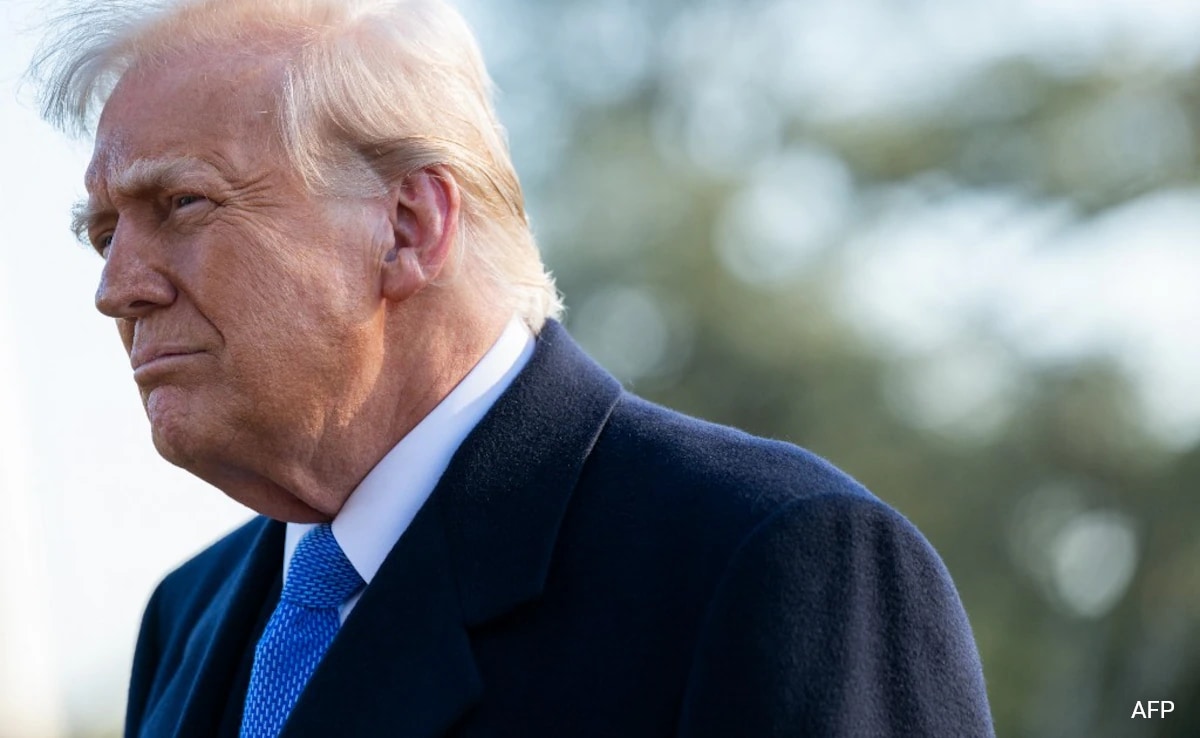Ukrainians in Limbo: The Impact of the “Uniting for Ukraine” Program Suspension
In a significant policy shift, the Trump administration has put a pause on the “Uniting for Ukraine” humanitarian program, which had previously allowed over 200,000 Ukrainians to find refuge in the United States. As the conflict in Ukraine escalates, many families like that of Nikita Demydov, who fled the war in Kharkiv, are now uncertain about their future. With Russian troops wreaking havoc back home, the suspension of this program has left thousands at the mercy of shifting political winds.
The “Uniting for Ukraine” initiative was launched in April 2022 under President Joe Biden’s administration to provide a safe harbor for individuals escaping the devastation caused by the ongoing conflict. However, as political dynamics evolve, particularly with Donald Trump back in the spotlight, the future of these humanitarian efforts is now ambiguous. For families like the Demydovs, who have established roots in San Diego, this abrupt change raises the specter of losing everything they have built since arriving in America.
Why Does This Matter? Humanitarian Crisis Unfolds
The uncertainty surrounding the status of the “Uniting for Ukraine” program is creating a palpable sense of fear among the Ukrainian community. The program, designed to offer stability and safety, has suddenly become a source of anxiety. Nikita Demydov expressed his concerns, stating, “If the new government cancels it, we’ll lose everything again, one more time, and start from scratch again.” His sentiment resonates deeply among the tens of thousands who have come to the U.S. seeking refuge from war and chaos.
As the situation unfolds, the suspension not only impacts those already in the U.S. but also casts a long shadow over the broader implications for future migrants from Ukraine. The Biden administration had initially set up various admission programs for individuals fleeing oppressive regimes in countries like Venezuela, Cuba, and Nicaragua, but Trump’s government appears to be systematically dismantling these lifelines.
Ester Miroshnychenko, an 18-year-old high school student from Ukraine, articulated the emotional toll this suspension brings. “If I have to leave everything, it’s gonna be really hard for me. It’s gonna be like everything that I achieved is gonna be destroyed,” she said. The fear of having to abandon all the progress she made since arriving in the U.S. is a shared experience for many.
What Are the Consequences of This Policy Change?
The ramifications of halting the “Uniting for Ukraine” program are multi-faceted, affecting not only legal status but also access to work and housing options for many Ukrainian families. Vlad Fedoryshyn, a liaison for newly arrived Ukrainians, noted an uptick in anxiety and confusion among those affected. “When you hear from the government that, hey, we’re not going to have this program for you anymore… what does that mean?” he questioned, emphasizing the void left in the lives of many who had started to build a new life in America.
The administration’s decision is seen as a step back toward a more restrictive immigration policy, reminiscent of previous periods when entry for migrants was severely limited. For many Ukrainians, it feels like a betrayal, as they have consistently viewed the U.S. as a bastion of hope and support amidst their homeland’s suffering. Fedoryshyn stated, “We are a small country,” reflecting on Ukraine’s reliance on international allies. Support from the U.S. has been essential in providing not only safety but also moral backing against aggressors.
Fears of Future Safety: A Perspective from the Ground
While the political landscape shifts, the situation on the ground in Ukraine remains dire, with civilians frequently facing attacks. Many in the Ukrainian diaspora are aware that returning to their war-torn homeland is not an option. The fear of continuing warfare looms large, casting doubt on the prospects for those like Fedoryshyn, who have made the tough decision to leave.
“Are you going to want to go back to Ukraine, where the war continues, where missiles could fall or a drone could hit your house any day?” he asked. The heartbreaking reality is that their pursuit of safety in the U.S. has come under threat, exacerbating feelings of instability and fear.
The dramatic change in U.S. policy appears discordant against the backdrop of the compassion that many everyday Americans have shown towards Ukrainians. Demydov reflected that while he feels welcomed by the community in San Diego, the actions and rhetoric coming from the government are disheartening. “You will not see it from the regular people,” he said, reaffirming the divide between public sentiment and political action.
Reflecting on Human Rights and Global Solidarity
As the world watches this humanitarian crisis unfold, discussions surrounding immigration policy and human rights take center stage. The experiences of Ukrainians seeking refuge in the U.S. highlight the necessity for empathy and understanding in times of international conflict. The suspension of the “Uniting for Ukraine” program is not just a policy decision; it reflects on broader themes of human dignity and support for those fleeing violence.
The ongoing debate around immigration and sanctuary policies underscores the urgency for legislative frameworks that can adapt to the challenges posed by global conflicts. The stories of individuals like Demydov and Miroshnychenko remind us of the human element behind these statistics and policies.
For more information on the impact of refugee policies, you can read[here](https://www.cnn.com) and learn about the conditions in Ukraine from[BBC](https://www.bbc.com).
With the future of the “Uniting for Ukraine” program now uncertain, one can only hope that compassion, solidarity, and a commitment to uphold human rights will guide U.S. policy in navigating these troubled waters. As the Ukrainian community continues to navigate this shifting landscape, their resilience and courage serve as a powerful testament to the human spirit’s capacity to endure in the face of adversity.
DISCLAIMER
We have taken every measure to ensure that the information in this article and on our social media platforms is accurate, verified, and obtained from reliable sources. For feedback or complaints, please contact us at info@hamslive.com.


